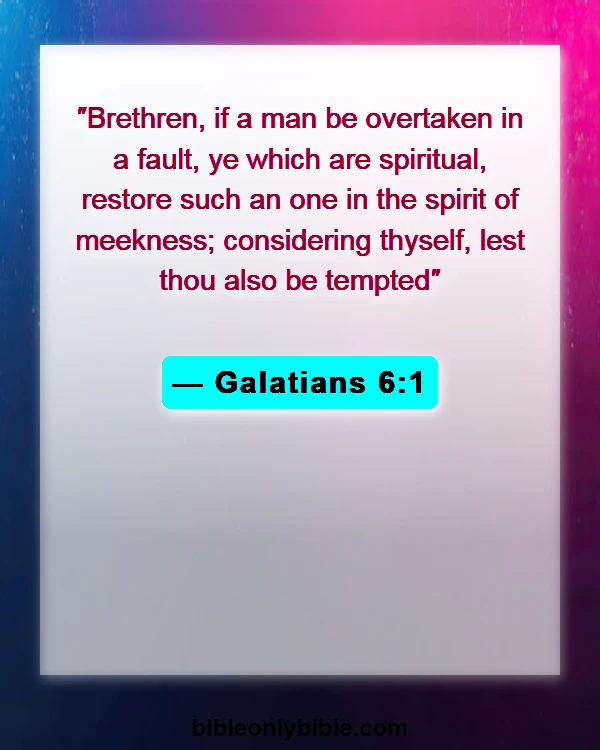Friends, if you’re searching for insights on “Bible Verses About Making Fun Of Others,” this content is for you. Today, I share Bible verses that can help you better understand the biblical perspective on mocking or ridiculing others. These scriptures offer guidance on how we should treat one another with respect and kindness, rather than engaging in hurtful behavior. Let’s explore what the Bible says about the importance of compassion and the consequences of making fun of others.
Contents
- 1 What Does the Bible Say About Mocking and Ridiculing Others?
- 2 Biblical Consequences of Making Fun of People
- 3 How Jesus Taught Us to Treat Others with Respect
- 3.1 Matthew 7:12 – Treat others as you want to be treated
- 3.2 John 13:34 – Love others as Jesus loved you
- 3.3 Luke 6:31 – Treat others as you want to be treated
- 3.4 Matthew 5:44 – Love enemies, pray for persecutors
- 3.5 Mark 12:31 – Love your neighbor as yourself
- 3.6 Luke 6:37 – Do not judge; show mercy and forgiveness
- 4 Old Testament Warnings Against Scoffing and Mockery
- 4.1 Proverbs 9:7-8 – Correcting mockers invites insult; rebuke the wise
- 4.2 Isaiah 28:22 – “Mockery invites swift and decisive judgment.”
- 4.3 Psalm 1:1 – Blessed are those who avoid mockery and scoffing
- 4.4 Proverbs 19:29 – Punishment awaits mockers and fools
- 4.5 Proverbs 3:34 – God opposes mockers, shows favor to humble
- 4.6 Psalm 119:51 – Scoffers deride, but I remain steadfast in God’s law
- 5 The Difference Between Gentle Correction and Harmful Teasing
- 5.1 Proverbs 27:5 – Open rebuke better than hidden love
- 5.2 Ephesians 4:15 – Speak truth in love, grow in Christ
- 5.3 Colossians 4:6 – Speak with grace, seasoned with salt
- 5.4 Proverbs 15:1 – Gentle words defuse anger; harsh words provoke conflict
- 5.5 Galatians 6:1 – Restore gently, avoid harmful teasing
- 6 Bible Verses About Speaking with Kindness and Love
- 6.1 Colossians 3:12 – Clothe yourself with compassion, kindness, humility, gentleness
- 6.2 1 Corinthians 13:4 – Love is patient and kind, not boastful
- 6.3 Proverbs 16:24 – Kind words bring sweetness and healing
- 6.4 1 Peter 3:9 – Return blessings, not insults, with kindness and love
- 6.5 James 1:19 – Be quick to listen, slow to speak, slow to anger
- 7 How to Respond When Others Mock Your Faith
- 7.1 1 Peter 3:15 – Respond with gentleness and respect when mocked
- 7.2 Matthew 5:11-12 – Rejoice when persecuted for righteousness; reward in heaven
- 7.3 Romans 12:14 – Bless those who mock, respond with kindness
- 7.4 1 Corinthians 4:12 – Endure hardship and respond with kindness
- 7.5 Luke 6:22 – Blessed when mocked for faith in Christ
- 8 Building Others Up Instead of Tearing Them Down: A Biblical Approach
- 8.1 1 Thessalonians 5:11 – Encourage and build each other up
- 8.2 Hebrews 10:24 – Encourage love and good deeds in others
- 8.3 Romans 14:19 – Promote peace and mutual edification
- 8.4 Colossians 3:16 – Let Christ’s message enrich, teach, and uplift one another
- 8.5 Proverbs 12:25 – Kind words bring joy and relieve anxiety
What Does the Bible Say About Mocking and Ridiculing Others?
Mocking or ridiculing others may seem harmless at times but can deeply wound someone’s spirit. The Bible offers wisdom on treating others with kindness and respect, reminding us that our words hold power. By choosing compassion over mockery, we reflect God’s love and create a more loving community. Let’s explore some verses that guide us in this.
Proverbs 21:23 – Guard your words to avoid trouble
Whoso keepeth his mouth his tongue keepeth his soul from troubles
Proverbs 21:23
Explanation:- Proverbs 21:23 highlights the importance of controlling our speech to prevent unnecessary conflict. Mocking and ridiculing others can lead to trouble, so it’s wise to guard our words. By speaking thoughtfully, we maintain peace and demonstrate respect for others.
Ephesians 4:29 – Speak only what builds up and benefits others

Let no corrupt communication proceed out of your mouth, but that which is good to the use of edifying, that it may minister grace unto the hearers
Ephesians 4:29
Explanation:- This verse encourages us to speak words that uplift and encourage, rejecting any form of speech that mocks or ridicules others. It highlights the importance of using our words constructively to build others up, fostering kindness and positivity in our interactions.
James 3:5 – The tongue, though small, can cause great harm
Even so the tongue is a little member, boasteth great things. Behold, how great a matter a little fire kindleth
James 3:5
Explanation:- The verse highlights how our words, despite their small size, can lead to significant harm. It warns against mocking and ridiculing others, reminding us that our speech can have powerful, destructive consequences, urging us to use our words with care and kindness.
Proverbs 11:12 – Wisdom in silence, understanding avoids contempt

He that is void of wisdom despiseth his neighbour: but a man of understanding holdeth his peace
Proverbs 11:12
Explanation:- This verse teaches the value of wisdom and restraint in speech. It advises against mocking or ridiculing others, highlighting that wise individuals choose silence over contempt. By avoiding derision, we demonstrate understanding and cultivate harmonious relationships, reflecting a compassionate, thoughtful character.
Galatians 6:7 – You reap what you sow

Be not deceived; God is not mocked: for whatsoever a man soweth, that shall he also reap
Galatians 6:7
Explanation:- The verse highlights the principle of sowing and reaping, emphasizing that our actions have consequences. Mocking and ridiculing others can lead to negative outcomes in our lives. This serves as a reminder to treat others with kindness and respect, as we ultimately face the results of our behavior.
Biblical Consequences of Making Fun of People
The Bible teaches us that our actions, especially those that harm others, have consequences. Making fun of people might seem trivial, but it can lead to broken relationships and hurt feelings. Understanding the impact of our words helps us choose kindness and empathy. Here are some verses that highlight the importance of speaking with care.
Proverbs 19:5 – False witness punished; lying leads to consequences

A false witness shall not be unpunished, he that speaketh lies shall not escape
Proverbs 19:5
Explanation:- This verse highlights the seriousness of bearing false witness and the inevitable consequences of lying. It serves as a warning against making fun of others through deceit or falsehoods, reminding us that truthfulness is essential and that dishonesty will ultimately lead to punishment.
Proverbs 6:16-19 – God detests pride, lies, harm, and discord
These six things doth the Lord hate: yea, seven are an abomination unto himA proud look, a lying tongue, hands that shed innocent bloodAn heart that deviseth wicked imaginations, feet that be swift in running to mischiefA false witness that speaketh lies, he that soweth discord among brethren
Proverbs 6:16-19
Explanation:- Proverbs 6:16-19 highlights behaviors that God finds detestable, including pride, deceit, causing harm, and sowing discord. These actions, often linked to making fun of others, lead to negative consequences. Emphasizing kindness and humility aligns with God’s teachings and promotes harmony.
Matthew 12:36 – Account for careless words spoken

But I say unto you, That every idle word that men shall speak, they shall give account thereof in the day of judgment
Matthew 12:36
Explanation:- This verse highlights the importance of being mindful of our words, as we will be held accountable for every careless remark. It serves as a warning against making fun of others, urging us to speak with kindness and thoughtfulness.
How Jesus Taught Us to Treat Others with Respect
Jesus set a powerful example of how we should treat others—with respect, love, and understanding. His teachings encourage us to look beyond differences and see the inherent worth in each person. By following His example, we can foster a more inclusive and compassionate world. Let’s reflect on these verses that illustrate Jesus’ approach.
Matthew 7:12 – Treat others as you want to be treated

Therefore all things whatsoever ye would that men should do to you, do ye even so to them: for this is the law the prophets
Matthew 7:12
Explanation:- This verse highlights the principle of treating others with the same kindness and respect we wish to receive. It underscores the importance of empathy and compassion in our interactions, encouraging us to avoid making fun of or belittling others.
John 13:34 – Love others as Jesus loved you

A new commandment I give unto you, That ye love one another; as I have loved you, that ye also love one another
John 13:34
Explanation:- In this verse, Jesus instructs us to love one another as He has loved us, setting a standard of unconditional and selfless love. By following His example, we learn to treat others with respect and kindness, avoiding actions like making fun of others.
Luke 6:31 – Treat others as you want to be treated

As ye would that men should do to you, do ye also to them likewise
Luke 6:31
Explanation:- This verse highlights the principle of empathy and respect, urging us to treat others with kindness and consideration. It serves as a reminder that mocking or belittling others contradicts the compassion and understanding Jesus taught, promoting harmony and mutual respect in our interactions.
Matthew 5:44 – Love enemies, pray for persecutors

But I say unto you, Love your enemies, bless them that curse you, do good to them that hate you, pray for them which despitefully use you, persecute you
Matthew 5:44
Explanation:- In this verse, Jesus instructs us to love our enemies and pray for those who persecute us. By doing so, we rise above negativity and embody compassion and respect, reflecting God’s love and fostering harmony even with those who may treat us unfairly.
Mark 12:31 – Love your neighbor as yourself

The second is like, namely this, Thou shalt love thy neighbour as thyself. There is none other commandment greater than these
Mark 12:31
Explanation:- This verse emphasizes treating others with the same kindness and respect we desire, highlighting the importance of empathy and compassion. It reminds us to avoid making fun of others, promoting a community built on love and understanding, as taught by Jesus.
Luke 6:37 – Do not judge; show mercy and forgiveness

Judge not, ye shall not be judged: condemn not, ye shall not be condemned: forgive, ye shall be forgiven
Luke 6:37
Explanation:- This verse guides us to refrain from judging others and encourages us to practice mercy and forgiveness. It underscores the importance of treating others with respect and compassion, embodying the teachings of Jesus by fostering an environment of understanding and kindness.
Old Testament Warnings Against Scoffing and Mockery
The Old Testament provides valuable lessons on the dangers of scoffing and mockery. These actions can lead to unnecessary conflict and a hardened heart. By heeding these warnings, we can choose to build others up rather than tear them down, creating a more positive and supportive environment. Consider these verses as guidance.
Proverbs 9:7-8 – Correcting mockers invites insult; rebuke the wise
He that reproveth a scorner getteth to himself shame: he that rebuketh a wicked man getteth himself a blotReprove not a scorner, lest he hate thee: rebuke a wise man, he will love thee
Proverbs 9:7-8
Explanation:- This passage highlights the futility and potential backlash of correcting those who mock and scoff, as they often respond with insults. In contrast, offering guidance to the wise is fruitful, as they are open to learning and growth.
Isaiah 28:22 – “Mockery invites swift and decisive judgment.”

Now therefore be ye not mockers, lest your bands be made strong: for I have heard from the Lord God of hosts a consumption, even determined upon the whole earth
Isaiah 28:22
Explanation:- This verse warns against mockery and scoffing, highlighting that such behavior invites rapid and severe consequences. It serves as a reminder of the seriousness of disrespect towards others and the divine, urging individuals to act with humility and respect to avoid judgment.
Psalm 1:1 – Blessed are those who avoid mockery and scoffing

Blessed is the man that walketh not in the counsel of the ungodly, nor standeth in the way of sinners, nor sitteth in the seat of the scornful
Psalm 1:1
Explanation:- This verse highlights the blessings for those who steer clear of mockery and scorn. It warns against engaging in negative behaviors like scoffing, encouraging a path of righteousness and wisdom by avoiding harmful influences and fostering a respectful, compassionate attitude.
Proverbs 19:29 – Punishment awaits mockers and fools
Judgments are prepared for scorners, stripes for the back of fools
Proverbs 19:29
Explanation:- This verse warns that mockers and fools will face consequences for their actions. It serves as a reminder that scoffing and mockery are not trivial matters but behaviors that lead to punishment, highlighting the importance of respect and humility in our interactions with others.
Proverbs 3:34 – God opposes mockers, shows favor to humble

Surely he scorneth the scorners: but he giveth grace unto the lowly
Proverbs 3:34
Explanation:- This verse highlights the contrast between God’s treatment of mockers and the humble. It warns against scoffing and mockery, emphasizing that God opposes those who deride others but extends grace and favor to those who are humble in spirit.
Psalm 119:51 – Scoffers deride, but I remain steadfast in God’s law
The proud have had me greatly in derision: yet have I not declined from thy law
Psalm 119:51
Explanation:- In the face of mockery, the psalmist remains unwavering in their commitment to God’s teachings. This verse highlights the resilience needed to stay true to one’s faith, even when others ridicule or scorn, emphasizing the strength found in adhering to divine guidance.
The Difference Between Gentle Correction and Harmful Teasing
There’s a fine line between gentle correction and harmful teasing. The Bible encourages us to speak truth in love, providing guidance without causing harm. By approaching others with compassion and understanding, we can offer constructive feedback that uplifts rather than belittles. These verses highlight the importance of this balance.
Open rebuke is better than secret love
Proverbs 27:5
Explanation:- This verse highlights the value of honest correction over disingenuous affection. While gentle correction aims to improve and guide, harmful teasing can damage relationships. Openly addressing issues signifies true love and care, fostering growth and understanding in contrast to concealing feelings.
Ephesians 4:15 – Speak truth in love, grow in Christ

But speaking the truth in love, may grow up into him in all things, which is the head, even Christ
Ephesians 4:15
Explanation:- This verse encourages us to address others with honesty and kindness, fostering growth in Christ. While gentle correction promotes understanding and unity, harmful teasing can damage relationships. Speaking truth in love helps build a supportive community rooted in compassion and mutual respect.
Colossians 4:6 – Speak with grace, seasoned with salt

Let your speech be always with grace, seasoned with salt, that ye may know how ye ought to answer every man
Colossians 4:6
Explanation:- This verse encourages speaking with kindness and wisdom, contrasting gentle correction with harmful teasing. By using grace and discernment in our words, we foster understanding and respect, avoiding speech that belittles others. It highlights the importance of thoughtful, respectful communication.
Proverbs 15:1 – Gentle words defuse anger; harsh words provoke conflict

A soft answer turneth away wrath: but grievous words stir up anger
Proverbs 15:1
Explanation:- Gentle words can calm tensions and ease anger, while harsh words often lead to conflict and hurt. The verse highlights the power of kindness in communication, encouraging us to choose words that heal and build rather than those that harm and provoke.
Galatians 6:1 – Restore gently, avoid harmful teasing

Brethren, if a man be overtaken in a fault, ye which are spiritual, restore such an one in the spirit of meekness; considering thyself, lest thou also be tempted
Galatians 6:1
Explanation:- This verse emphasizes the importance of correcting others with kindness and empathy. It encourages believers to offer guidance gently, avoiding ridicule or harmful teasing. The focus is on restoration and support, helping others grow without causing hurt or shame.
Bible Verses About Speaking with Kindness and Love
Speaking with kindness and love is a central theme in the Bible. Our words have the power to heal, encourage, and bring joy to others. By choosing language that reflects God’s love, we can positively impact the lives of those around us. Let these verses inspire you to speak from a place of love and kindness.
Colossians 3:12 – Clothe yourself with compassion, kindness, humility, gentleness

Put on therefore, as the elect of God, holy beloved, bowels of mercies, kindness, humbleness of mind, meekness, longsuffering
Colossians 3:12
Explanation:- This verse encourages believers to embody qualities such as compassion, kindness, humility, and gentleness in their interactions. By doing so, they create a loving and supportive environment, countering any tendency to make fun of others and promoting respectful and kind communication.
1 Corinthians 13:4 – Love is patient and kind, not boastful

Charity suffereth long, is kind; charity envieth not; charity vaunteth not itself, is not puffed up
1 Corinthians 13:4
Explanation:- This verse reminds us that true love embodies patience and kindness, avoiding arrogance and boasting. In the context of speaking with kindness, it encourages us to treat others with respect and compassion, refraining from making fun of or belittling them.
Proverbs 16:24 – Kind words bring sweetness and healing

Pleasant words are as an honeycomb, sweet to the soul, health to the bones
Proverbs 16:24
Explanation:- Kind words have the power to uplift and heal, creating an atmosphere of love and understanding. Speaking with kindness fosters positive relationships and counters negativity, highlighting the transformative impact of gentle speech in our interactions with others.
1 Peter 3:9 – Return blessings, not insults, with kindness and love

Not rendering evil for evil, or railing for railing: but contrariwise blessing; knowing that ye are thereunto called, that ye should inherit a blessing
1 Peter 3:9
Explanation:- In this verse, believers are encouraged to respond to insults and mistreatment with blessings instead of retaliation. It underscores the importance of speaking with kindness and love, fostering peace and compassion in interactions, and reflecting the grace one receives from God.
James 1:19 – Be quick to listen, slow to speak, slow to anger

Wherefore, my beloved brethren, let every man be swift to hear, slow to speak, slow to wrath
James 1:19
Explanation:- This verse encourages us to approach interactions with patience and understanding. By listening carefully, speaking thoughtfully, and controlling our anger, we foster an environment of kindness and love. This mindset helps avoid making fun of others, promoting respect and compassion in our relationships.
How to Respond When Others Mock Your Faith
Facing mockery for one’s faith can be challenging, but the Bible offers strength and encouragement in these moments. It teaches us to respond with grace and patience, trusting in God’s plan and maintaining our integrity. By standing firm in our beliefs, we can be a testament to God’s love and power. Reflect on these verses for guidance.
1 Peter 3:15 – Respond with gentleness and respect when mocked

But sanctify the Lord God in your hearts: be ready always to give an answer to every man that asketh you a reason of the hope that is in you with meekness fear
1 Peter 3:15
Explanation:- When facing mockery for your faith, it’s important to respond with kindness and understanding. This verse encourages believers to defend their beliefs with gentleness and respect, maintaining a calm and compassionate demeanor, reflecting Christ’s love even in challenging situations.
Matthew 5:11-12 – Rejoice when persecuted for righteousness; reward in heaven

Blessed are ye, when men shall revile you, persecute you, shall say all manner of evil against you falsely, for my sakeRejoice, be exceeding glad: for great is your reward in heaven: for so persecuted they the prophets which were before you
Matthew 5:11-12
Explanation:- This passage encourages believers to find joy in being persecuted for their faith, as it signifies their righteousness. It reassures them that enduring such trials will lead to great rewards in heaven, offering comfort and hope in the face of mockery and adversity.
Romans 12:14 – Bless those who mock, respond with kindness

Bless them which persecute you: bless, curse not
Romans 12:14
Explanation:- In this verse, the focus is on responding to mockery and ridicule with kindness and blessing. This teaching encourages us to rise above negativity, embodying compassion and grace even when faced with hostility, thus reflecting the love and patience of our faith.
1 Corinthians 4:12 – Endure hardship and respond with kindness

Labour, working with our own hands: being reviled, we bless; being persecuted, we suffer it
1 Corinthians 4:12
Explanation:- In times of mockery and hardship, maintain a spirit of resilience and kindness. This verse encourages responding to ridicule with grace, embodying patience and love. By enduring challenges with a gentle heart, we reflect the strength and compassion of our faith.
Luke 6:22 – Blessed when mocked for faith in Christ
Blessed are ye, when men shall hate you, when they shall separate you from their company, shall reproach you, cast out your name as evil, for the Son of man’s sake
Luke 6:22
Explanation:- When others mock your faith, remember that such persecution is a sign of blessing. Embrace these challenges with grace, knowing they strengthen your relationship with Christ and affirm your commitment to His teachings. Rejoice in being part of God’s kingdom.
Building Others Up Instead of Tearing Them Down: A Biblical Approach
The Bible encourages us to uplift and support one another, fostering a community rooted in love and understanding. By focusing on building others up, we create an environment where everyone can thrive and feel valued. These verses remind us of the importance of using our words and actions to encourage and inspire those around us.
1 Thessalonians 5:11 – Encourage and build each other up

Wherefore comfort yourselves together, edify one another, even as also ye do
1 Thessalonians 5:11
Explanation:- This verse urges us to support and uplift one another, promoting a positive and compassionate community. Instead of mocking or belittling others, we are called to encourage and strengthen each other, fostering an environment of love and growth in line with biblical teachings.
Hebrews 10:24 – Encourage love and good deeds in others

Let us consider one another to provoke unto love to good works
Hebrews 10:24
Explanation:- This verse emphasizes the importance of motivating one another towards love and positive actions. Rather than mocking or belittling others, it encourages fostering a supportive community where individuals uplift each other, reflecting Christ’s love through encouragement and constructive engagement.
Romans 14:19 – Promote peace and mutual edification

Let us therefore follow after the things which make for peace, things wherewith one may edify another
Romans 14:19
Explanation:- This verse encourages us to focus on fostering peace and uplifting one another. Instead of making fun of others, we should seek ways to build them up, promoting harmony and mutual growth, reflecting a Christ-like love in our interactions.
Colossians 3:16 – Let Christ’s message enrich, teach, and uplift one another

Let the word of Christ dwell in you richly in all wisdom; teaching admonishing one another in psalms hymns spiritual songs, singing with grace in your hearts to the Lord
Colossians 3:16
Explanation:- This verse encourages believers to let Christ’s teachings dwell within them, guiding their interactions. By focusing on wisdom, teaching, and gratitude, it fosters an environment of mutual encouragement and spiritual growth, where individuals uplift rather than belittle one another.
Proverbs 12:25 – Kind words bring joy and relieve anxiety

Heaviness in the heart of man maketh it stoop: but a good word maketh it glad
Proverbs 12:25
Explanation:- This verse highlights the power of kind words to uplift and alleviate anxiety. In a world where mocking or belittling others is common, choosing to speak with kindness can bring joy and comfort, encouraging us to build others up rather than tearing them down.
